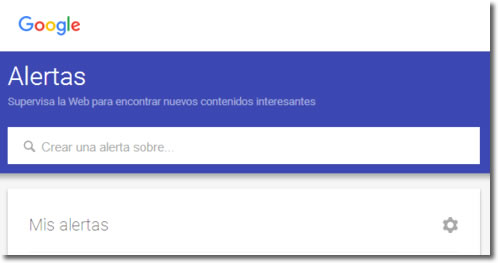Our public fingerprint is the one that remains on the Internet related to us and that is available to anyone for being a public content.

Especially relevant for us is that information that can be found just looking for our name in the search engines. This greatly facilitates that people who seek information from us find it immediately.
The footprint that we form over time on the Internet is in many cases our direct responsibility, that is, the one we leave personally in public places, such as some social networks, public forums, comments on blogs, etc., provided that we do it under our first name.
But also our name can appear in other places where we have not intervened, as in a publication of official bulletins, compilers of telephone information of dubious legality, or someone appoints us in a public space with or without bad intentions, etc.
Is it convenient to have a fingerprint?
Having a fingerprint of this type is not necessarily negative. On many occasions it is profitable, as long as the information is positive for us. Think of famous people or those who want to give a concrete image for work, business or any other reason.
But we also find the possibility that our fingerprint plays against us. It is common knowledge that in most companies, when they make personnel selections, they do previous searches of the candidates’ fingerprints and their presence in social networks. Many young people are rushing to “clean up” their presence on the Internet when they face their first job interview.
In summary, the fingerprint today is almost essential, especially if we talk about younger people. Currently it is almost impossible for a young person not to have a presence on the Internet, even if it is moderate. Not having it could raise certain suspicions. It could indicate that either he has radically erased it or does not use the Internet at all, both situations that do not contribute anything positive, especially to a young person.
The ideal thing, therefore, is to maintain a public presence on the Internet, which may be of greater or lesser importance, but taking care that the contents are positive for our purposes and that they cannot turn against us under any circumstances.
Search yourself or “Egosurfing”
An interesting practice to keep informed of what others can find of us through a simple search is to do it ourselves.
It is known by the term egosurfing which is no more than to investigate on the Internet what we find when looking for our own name. It should be done with some frequency, because the available information is dynamic and can change at any time.
Schedule the “egosurfing”
To avoid having to perform the searches ourselves, we can program Google under our account to perform a constant Internet tracking in search of our name or any other text that we believe appropriate.
The tool, which not many people know, is called Google Alerts and allows you to save the searches you want. Each time the system finds a new match with the text programmed for the search, it will send us an email to notify us and will attach the Internet place where it was found.
In this way, it will not be necessary for us to worry about searching for ourselves. Google does it for us and notifies us immediately whenever we publish information that we have programmed, such as our name, ID, telephone no., car registration plate, etc.
How to clean the negative fingerprint
It is important to remain attentive to our information that appears public on the Internet, but that is the simplest task and the one that will take less effort. More complicated will be to eliminate certain information, which is sometimes published in services and companies that belong to other countries, where our requests are ignored.
In general, the possibilities we will encounter are some of the following:
- If we have published the information ourselves, as in a public forum or social networks under our name, we must only access the service to delete it, change our name or ask the administrators to delete it.
- If we appear on a page or blog because at some time we wrote our name or maybe someone else wrote it, we will not be able to access the content, but it will be enough to ask the administrators to remove it.
- And if we do not succeed, we can always resort to the possibility offered by Google so that the result does not appear in the searches. The information will still be published, but at least it will not appear when the search engine is used. It is not a simple or immediate process with guarantees, but we can try it if we cannot eliminate the information. We must follow the instructions found on this page, section ‘Web Search’. Here they explain the policies that follow to access the removal of content.
- In extreme cases and if nothing works, it is possible to opt for a more complex solution, in the long term and perhaps not available to many less expert users. It would be a question of “flooding” the Internet with positive information of ours, which is controlled by us, so that the negative results will have more remote positions in the results of the searches. Profiles on Facebook or LinkedIn, with the appropriate privacy to be found by search engines, will appear at the top of the searches. Some blog to our name, presence in appropriate forums, etc., can help to occupy the first positions of the results. Today we know that everything that appears from the second search engine results page is almost “nonexistent”, so this could be a good method to “hide” or minimize the impact of a harmful fingerprint.
- If the information that appears can be considered as a crime, for example insults, pornographic images, hatred, etc., it is possible to resort to the Police to report the page. In the case of it being a page located in the country itself, the police action will surely have an effect, otherwise it is very possible that the content will never be eliminated.

